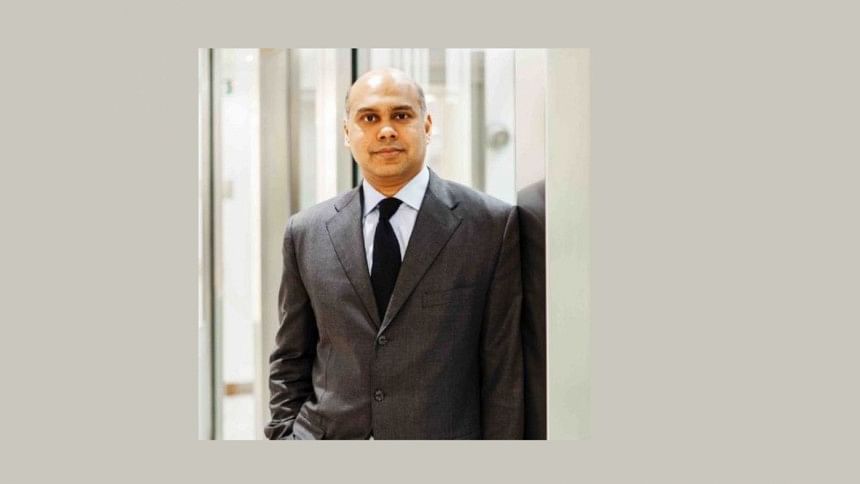Fixing our banks. Building a more robust banking system

When asked why he robbed banks, the famous American bank robber, Willie Sutton, famously quipped "because that's where the money is." It seems that many of our leading business leaders have adopted a similar mindset over the past fifteen years. Regrettably for our nation, they have become alarmingly adept at robbing banks.
The Bangladeshi banking system is in a precarious situation. The causes of this predicament are well-documented by various analysts (The Centre for Policy Dialogue has produced several well-researched presentations). There is a consensus on how we arrived at this juncture and the magnitude of the issues we face. There is also an agreement that reforming our banks and regulatory framework is crucial since banks are the primary source of credit in our economy, and without an effective credit system, our economy cannot function.
As a Bangladeshi citizen with significant experience in financial markets in New York and London, I wish to share my perspective. We should not panic. Fortunately, the problems faced by Bangladeshi banks are not unprecedented and compare favourably to crises I have witnessed elsewhere. We will need an audit to get a true picture, however various sources put the country's NPL ratio at around 10-15% of total loans outstanding. So even if we were off and NPL were to double to 30%, that would be lower than situations I have faced (for example, Ukraine banks' NPL ratio reached over 50% in 2018, Greece's NPL ratio also exceeded 50% in 2015, Turkey peaked at 30% in 2000). There are multiple solutions to this mess. My confidence stems from my two-decade career in finance, during which I observed numerous global banking crises.
Young people today may not recall that our global financial system nearly collapsed fifteen years ago. During that time, developed economies like the US, UK, Germany, Ireland, Spain, Portugal, Greece, and Iceland had to bail out their banks and reassess their banking regulations. Each country had similar options but chose different paths based on political feasibility and philosophical leanings. Some took longer than others. Some solutions worked better than others. In all situations, banks were adequately recapitalised, bad assets disposed of, and regulations changed. In some cases (like the US, UK, Ireland, Germany, and Iceland), economic growth returned, and the size of the economy today is larger than it was pre-banking crises. But in other situations (Italy, Spain, and Greece), the economy remains much smaller than it was before the problems. I believe with the right solution mix and proper political resolve, Bangladesh can come out of this predicament with a far better foundation for future growth.
Here are some lessons I've learned that could be particularly relevant for Bangladesh:
Firstly, government intervention is necessary but can be "light-touch" with multilateral agency assistance. Some countries even profited from intervening in troubled banks (although that sounds pretty optimistic in Bangladesh's case right now).
Secondly, fixing the banks' capital structure is crucial. A thorough audit of each bank will help understand their true state and how much capital is needed. To the extent feasible, banks should be given the opportunity to raise this capital in private markets. The government can come in as a provider of last resort and its terms need to reflect that.
Thirdly, weak banks should be wound up. Their productive assets can be taken over by relatively stronger banks, leading to increased concentration initially but solvable later with the granting of new licenses.
Fourthly, we should establish an asset management company (AMC) to handle troubled assets independently. The government can provide the equity needed for the AMC and can provide guarantees. However, the AMC needs to be able to act independently and within the current judicial system to work out the troubled assets. AMCs are not guaranteed to succeed when systems have high levels of troubled assets.
However, in the right circumstances, they can help solve much of the problem without significantly burdening public finances.
Fifthly, we will need to create a robust independent bank regulator to prevent politically connected individuals from securing excessive loans.
We need to remember that our banks did not get into trouble because they were being greedy or acting imprudently. Our solution space needs to acknowledge that as an emerging economy, our banks will always face political pressure to lend, so our regulatory framework needs to develop with an eye towards curtailing that. We also need to tread carefully here as there can be many unintended consequences for poor regulations. If we come down too hard on the banks, they will not lend, and our economy will suffer.
Finally, while it is outside my immediate area of expertise, I believe we will need to enhance Bangladesh's legal framework to facilitate a distressed asset market. Banks will always extend and pretend if the regulators allow them. Creating an effective mechanism for private parties to come in and take the troubled assets off the banks' balance sheets will be essential going forward. Defaulters have gotten away in Bangladesh for decades. We need to put a stop to that. I am optimistic that we can.
The author is a global public markets equity portfolio manager

 For all latest news, follow The Daily Star's Google News channel.
For all latest news, follow The Daily Star's Google News channel. 



Comments